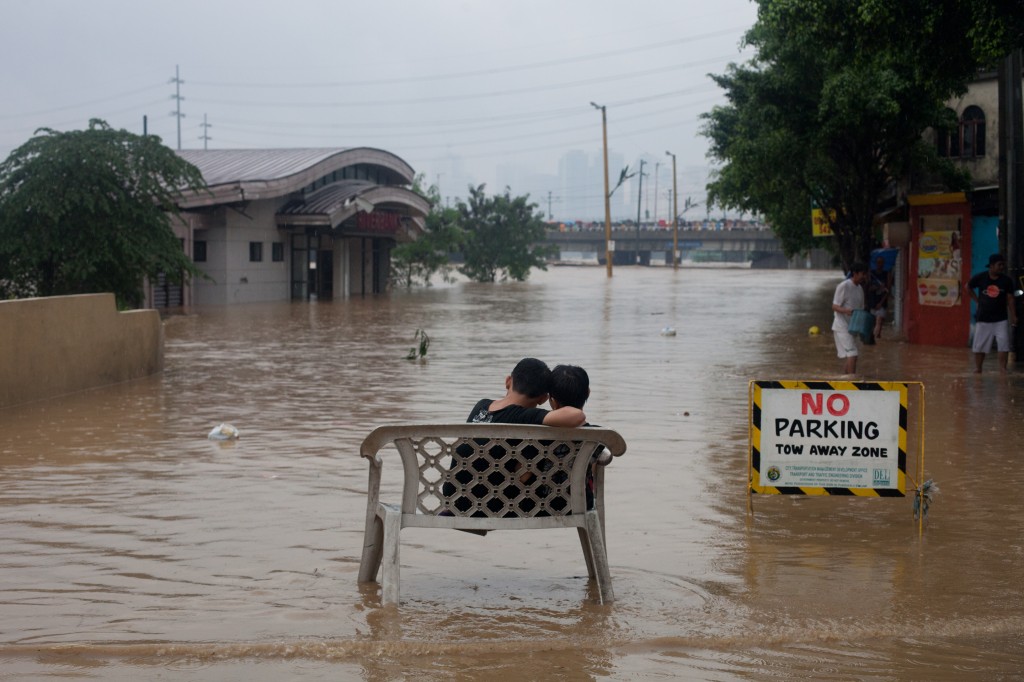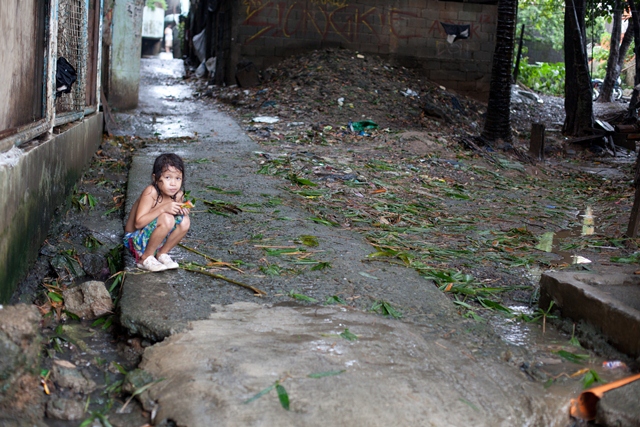To highlight the importance of Christian Aid’s disaster risk reduction (DRR) work, partly funded by the UK government, the charity produced an interactive web documentary called Big River Rising, which demonstrates the importance of science in helping Filipino slum dwellers cope with the seasonal flooding that regularly destroys their shantytown homes.
The web documentary was shot during the dramatic August 2012 monsoon deluge, which flooded much of the Manila metropolis and forced more than 700,000 people to evacuate their homes.
Big River Rising follows the story of 52-year-old mother-of-five Belen de Guzman as she nervously monitors the rising river close to her makeshift home and coordinates the community’s evacuation as the area becomes submerged.
Using photography, audio, text, video and maps, the viewer is able to explore the Marikina River along which Belen’s community in Banaba, live. A straight forward, educational and engaging narrative explains how rapid and uncontrolled urban development, mountain deforestation, mining activities and global climatic changes have made Metro Manila and its poorest communities ever more vulnerable to flooding.
The documentary also explains how scientists and Christian Aid partners are helping communities like Banaba to prepare for, and adapt to, persistent flooding while lobbying the government for solutions, and why communities like Belen’s choose to stay in the ‘danger zones’, despite the risk to their lives.
Professor Fernando Siringan, from the University of the Philippines Marine Science Institute, has been working with Christian Aid to help the people they work with in poor riverbank communities understand their vulnerability to flooding and other related geological hazards.
Fernando explains “using satellite images and field studies my team have mapped out up to 84 manmade obstacles or constructions that significantly hinder the direction and flow of Manila’s two biggest rivers.
“Our findings show that high walls, houses, slums, factories and commercial buildings built on the floodplain, are all contributing to the annual flooding problem, which washes away homes and claims lives every year.
“Now this research is being used by Christian Aid, and the communities it represents, as credible evidence with which to lobby the Filipino government for lasting solutions.
“While scientists like me are able to provide knowledge on the biological, physical and chemical processes, NGOs like Christian Aid are best placed to handle socio-economic dimensions and advocacy. By working together it allows me to help communities and make my science relevant.”
You can hear more from Carlos Primo C David, another geoscientist working with Christian Aid on the geolsoc blog:
“In the past I must admit that I didn’t really consider the social impacts of my work; I was just concerned that my models were running and made accurate predictions. But today it’s a big part of my job.”
Big River Rising was produced in-house. The aim of the project was to get online media coverage about Christian Aid’s disaster risk reduction work and to explain the benefits of such work. The resulting web documentary generated media coverage, which included the home page of the BBC News website, the independent.co.uk, and the guardian.co.uk, as well as articles on humanitarian, multimedia and Christian websites. The Geological Society promoted it on their website as part of Earth Science Week, also running features on two of the scientists working with Christian Aid partners. The British High Commission in Manila used it to highlight National Climate Consciousness Week and to draw the attention of UK government leaders. It is also being used in the Philippines (and the UK) by organisations and communities that support disaster risk reduction work; and in UK schools to educate students about disaster.
Big River Rising was also shortlisted for a One World Media Award and will be show at the Sheffield Doc Fest in June.
You can watch the video here.
–Thanks to Emma Wigley


